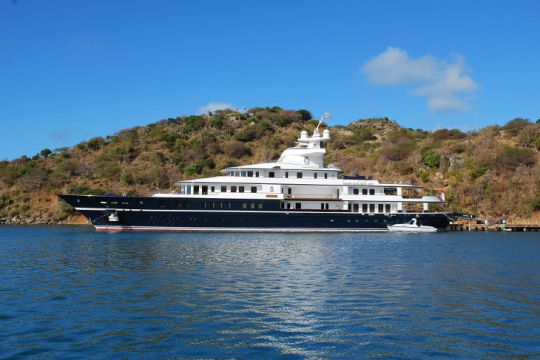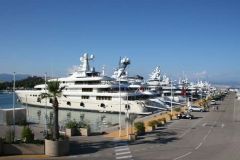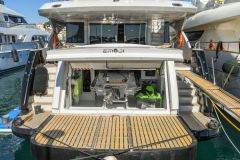While the debate continues on the parliamentary majority's plan to tax yachts longer than 30 m, BoatIndustry wanted to offer a technical perspective on the device, outside partisan points of view. We interviewed Matthieu Toret, a lawyer specialising in customs law with Enerlex and a former official with the Ministry of Finance, particularly in matters relating to the taxation of ships. Today, he advises yacht owners.
There is talk today of taxing yachts of French residents, but also those used by French, via companies based outside the European Union. How can this arrangement work with regard to the territorial tax powers of the states?
Matthieu Toret : There is indeed a problem linked to the territoriality of the tax but that the government should be able to raise without too much difficulty for boats under foreign flag used by French people.
For vessels flying the French flag, the Government's plan is simply to increase the annual francization and navigation fee (DAFN), which will be paid by owners of vessels at least 30 metres in length. The amount of this fee is already calculated on the basis of the length of the vessel and the power of the vessel's engines.
As regards yachts under foreign flag, which represent the majority of cases, the tax on yachts could take the form of an increase in the passport fee payable by individuals, whatever their nationality, having their tax residence in France and companies having their registered office in France. This tax is due, depending on the case, either by the owner or by the actual user of the vessel.
It should be noted that there is an exemption granted to companies that own a yacht under a foreign flag, which is the subject of a lease with an option to purchase or a financial lease, provided that the lessee does not have his main residence in France or an establishment in France.

Yacht at dock
What do the 30 0000 € to 200 000 € announced represent in relation to the ISF today and the remaining yacht-related expenses?
Matthieu Toret : The amendment, as presented, provides for a tax, the tariff of which varies from a minimum of ?30,000 for vessels between 30 and 40m in length, to 200 000 € for vessels exceeding 70 metres and having a propulsion power of at least 1500 kW. These amounts may change during the parliamentary debate depending on the lobbying of the various parties.
In my opinion, boating and yachting professionals have a strong argument to make with the government to try to obtain a change or even a suppression of this project. In recent years, this fiscal tightening has taken the form of a tightening of the VAT regime applicable to pleasure boating, followed by an increase in the TICPE on the fueling of boats.
Consequently, the increase in the DAFN and passport fees announced, even if they are lower, will be added to these increases, which is a bad signal addressed to a sector that is certainly associated with leisure activities for the privileged, but nevertheless provides jobs and can easily be relocated.
There was talk of allocating the funds to SNSM. The amendment has been withdrawn, but is this feasible?
Matthieu Toret : You are right, it seems that the amendment as drafted does not yet formally provide for this allocation of revenue to the SNSM. As the tax on yachts has a strong symbolic character, we could see this allocation reappear later in parliamentary debates.















